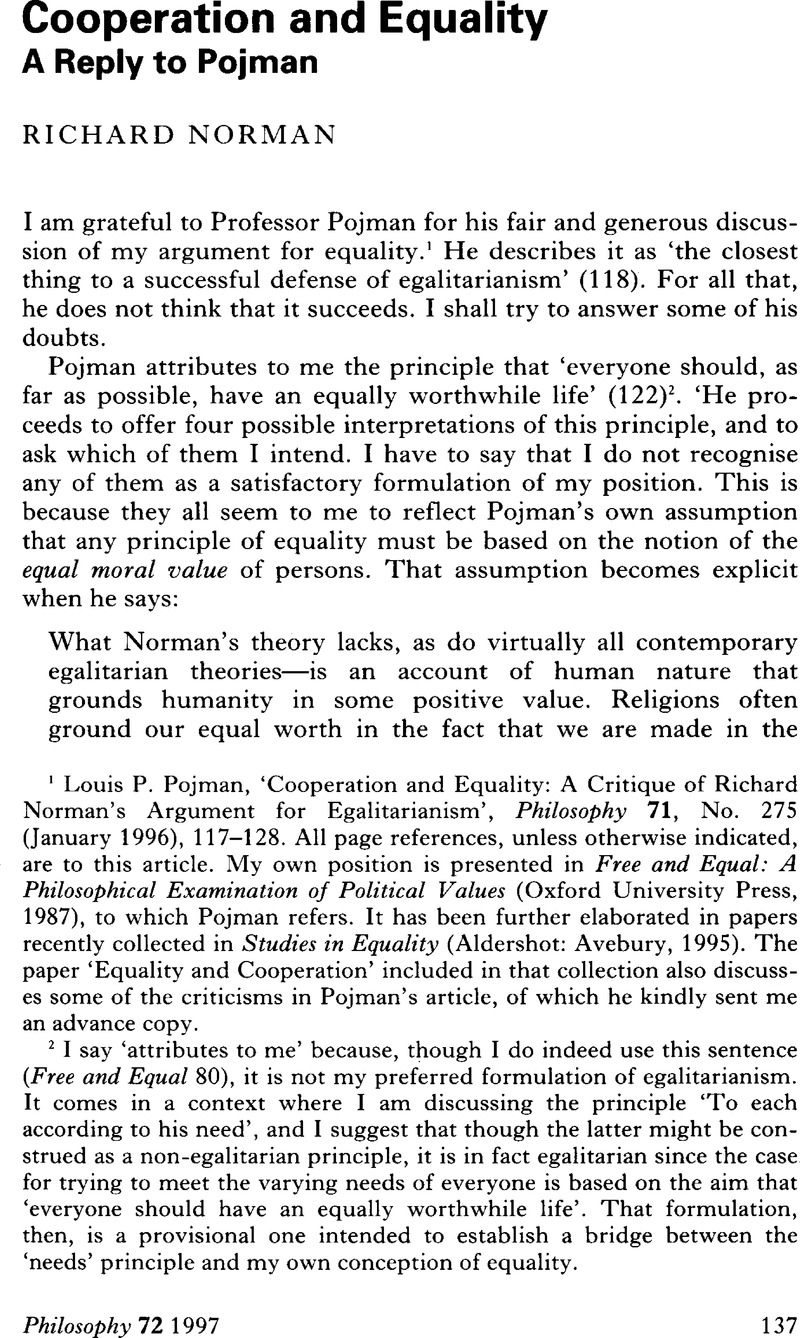No CrossRef data available.
Article contents
Cooperation and Equality: a Reply to Pojman
A Reply to Pojman
Published online by Cambridge University Press: 30 January 2009
Abstract

- Type
- Discussion
- Information
- Copyright
- Copyright © The Royal Institute of Philosophy 1997
References
2 I say ‘attributes to me’ because, though I do indeed use this sentence (Free and Equal 80), it is not my preferred formulation of egalitarianism. It comes in a context where I am discussing the principle ‘To each according to his need’, and I suggest that though the latter might be construed as a non-egalitarian principle, it is in fact egalitarian since the case for trying to meet the varying needs of everyone is based on the aim that ‘everyone should have an equally worthwhile life’. That formulation, then, is a provisional one intended to establish a bridge between the ‘needs’ principle and my own conception of equality.
3 John, Searle, ‘How to Derive “Ought” from “Is”’, Philosophical Review 73 (1964), 43–58.Google Scholar
4 David, Hume, A Treatise of Human Nature, Book III, Part II, Section II.Google Scholar




